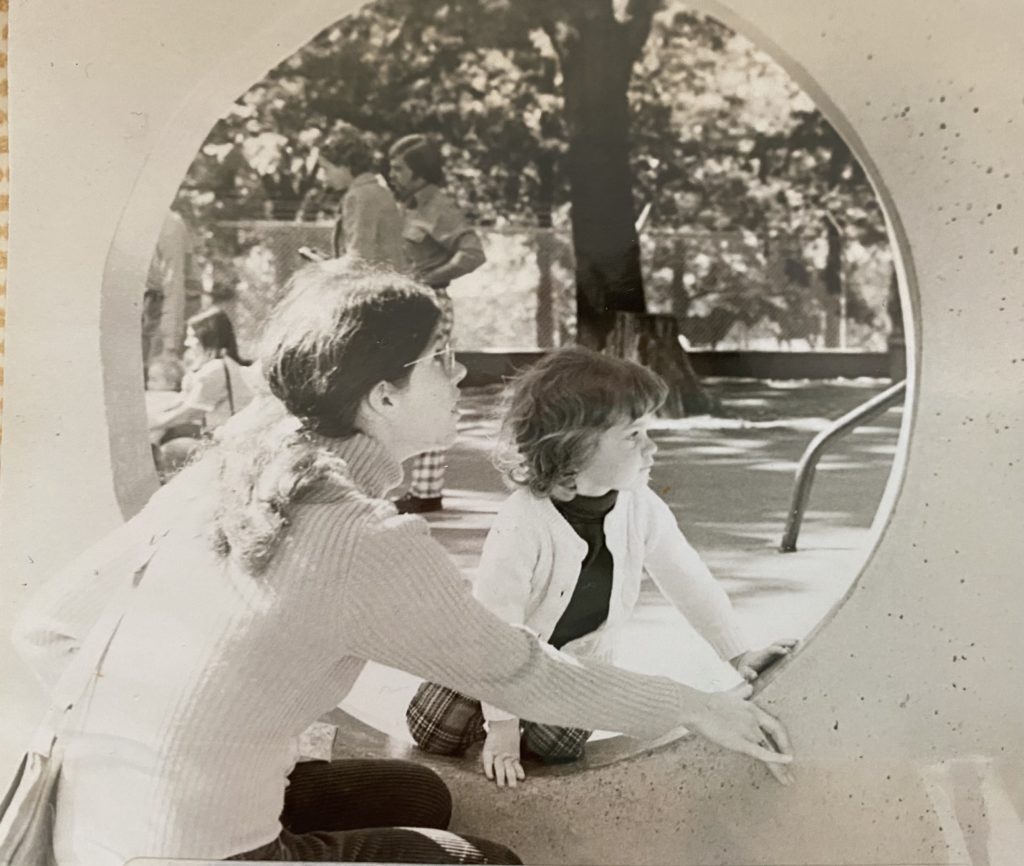
Sacrifice was something my mom knew all too well while I was growing up. At just 24 years old, she was left scrambling to raise my brother and I, and to navigate life as a working single-parent without a college degree or a basic support structure. Just keeping a roof over our heads and food on the table was an endless struggle, especially with a child with a complex health condition, and even after hours spent clipping coupons for three different grocery stores, she often had to make the difficult decision between paying for heating or having enough to eat.
At a time when she should have been filled with lively youth, my mom was weighed down by poverty, and the never-ending attempts to claw our way towards economic security without any clear path towards achieving it. After years of low-wage jobs, she finally had the chance to go back to school when I was a teenager, but had to take in a roommate to help pay the bills. Even then, she was overwhelmed by fears of what one unexpected emergency would mean for our family, too anxious about our struggles to truly focus on investing in our futures.
The stress of poverty we experienced is a reality for far too many families in Cambridge, especially those headed by single caregivers. A recent report published by the Cambridge Community Foundation found that more than one-third of local single caretakers earn just $30,000 or less annually, but according to MIT’s Living Wage Calculator, a single caregiver with two children would need to earn $104,443 each year to just make ends meet, without setting aside money for college or emergencies. Poverty levels among residents of color is also twice that of the City-wide poverty rate. It’s clear that, in one of America’s increasingly most unaffordable cities, economic mobility is becoming a fleeting dream for many.
Cambridge RISE, a guaranteed income pilot launching this summer, is a ray of hope for our community. By giving 120 low-income single caretaker families regular, no-strings-attached $500 payments for 18 months, this pilot will be a transformative opportunity for our low-income residents, giving them a desperately-needed boost towards financial security. Upon learning about RISE, my mother teared up, saying that with this support, “I could have been a different mom.”
For the participants in SEED, the two-year guaranteed income pilot that recently wrapped up in Stockton, California, the results were striking. Recipients, who were given unconditional $500 payments each month, overwhelmingly used the money for basic needs like food, clothes, and utilities, with less than 1% of the funds being used to purchase tobacco or alcohol. Having these payments to fall back on improved recipients’ health, who showed less depression and anxiety, and enhanced wellbeing. Overall, this guaranteed income was proven to enhance mental health at the same level as clinical trials of Prozac.
When this financial safety net was coupled with improved mental health, participants’ mindsets transformed. Instead of remaining in survival mode as they struggled to scrape by, they had new opportunities for self-determination, goal-setting, and risk taking. Simply put, having a little extra breathing room in their budget every month emboldened them to take time off work to interview for a higher-paying job, go back to school, save for a rainy day, and get on a path towards upward economic mobility. Those receiving this guaranteed income were twice as likely to transition from part-time to full-time work than those who did not, demonstrating that these payments will have a long-lasting impact, far past the end of the pilot.
The data shows a real, tangible impact on recipients’ lives, but there is also value to guaranteed income that cannot be measured so easily. Anecdotally, SEED recipients reported being better partners, parents, and neighbors. Some were able to focus on their kids more, becoming involved with their school or enabling them to take part in extracurriculars. Others were able to access healthcare more easily, with early preventative care meaning long-term health and financial benefits. Even beyond the numbers, a guaranteed income made a meaningful difference in their lives.
In helping develop this pilot, my firsthand experiences being raised by a single parent made this project very personal to me. I will always be eternally grateful for the endless sacrifices my mom made for my brother and I, but she shouldn’t have had to make the tough choice between keeping the lights on and investing in our future. Low-income moms, especially around Mother’s Day, are far too often glorified for making incredible sacrifices for their children, like going hungry so their kids have enough to eat, when the mere existence of these difficult decisions indicate a systemic failure. A guaranteed income like this is the relief our community needs to fix this failure, and it is exactly the kind of opportunity my family needed when I was younger.
Cambridge RISE was founded by Mayor Sumbul Siddiqui, Vice Mayor Alanna Mallon, Councillor Marc McGovern, the Cambridge Community Foundation, the Cambridge Economic Opportunity Committee, Just-A-Start, and the Cambridge Housing Authority, and couldn’t have been possible without generous support from donors, including Harvard University, MIT, and Mayors for a Guaranteed Income. To learn more about Cambridge RISE, visit our website: https://www.cambridgerise.org/
